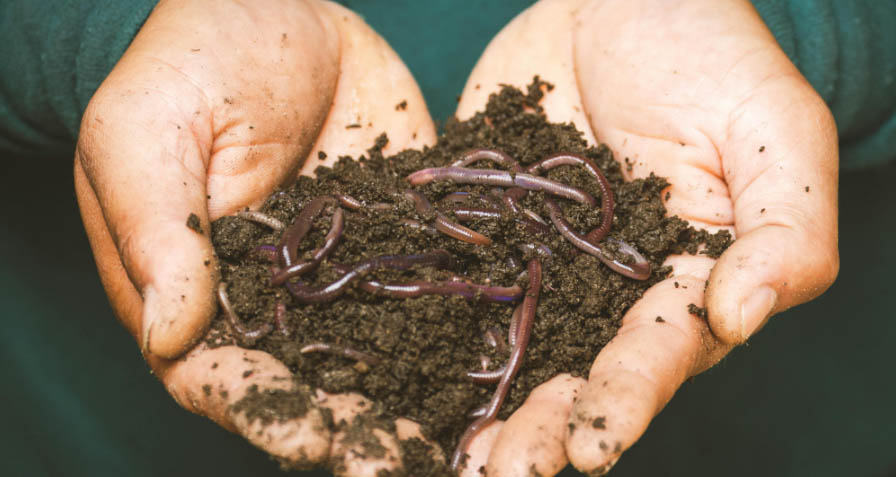Research Report: 2023
▼ Choose a report:

Powered by Research & Graduate Studies

Powered by Arts and Social Science

Powered by Science and the Environment


Dr. Mano Krishnapillai
Earthworms are considered fundamental bioengineers of nearly all earthly ecosystems. They play a major role in soil nutrient cycling and form an integral part in agriculture production. Environmental factors affect their population dynamics and management practices implemented in the field can have a direct effect on their diversity, biomass, and abundance.
Through a two-year study, Dr. Mano Krishnapillai is investigating how various agricultural management practices affect local earthworm populations in terms of species diversity, biomass, and abundance. He received funding from the Grenfell Campus Research Fund to pursue this research.
He said the data available in Newfoundland is scarce and needs investigation to find the effect of management practices on earthworm population dynamics.
"I feel the missing link in this research is the soil biota," he said. "One of the important organisms in soil ecosystem that helps nutrient cycling is the earthworm."

According to his research proposal, earthworms have been used as biological indicators in many studies to analyze the effects of pollutants on the health of soil communities (Fründ et. al., 2011). Earthworms are also considered ecosystem engineers, facilitating the decomposition of organic matter, helping aeration by boring holes, and turnover of nutrients (Edwards, 2004).
Newfoundland has boreal podzolic soils, meaning they are characterized by excessive leaching and are naturally acidic, making them nutrient-poor and unproductive for agricultural production. Fertilizers and soil amendments are often applied to soils to render them more suitable for crop production, and agricultural practices further disturb the soil environment resulting in poor soil health.
This may significantly alter physical and chemical properties of the soil, making it uninhabitable for soil biota (such as earthworms), negatively impacting their population levels (Edwards, 2004).
Boreal ecosystems are also characterized by slow rates of decomposition (Chapin, et. al., 2011), and poor nutrient status, emphasizing the essential role of decomposition by earthworms in these ecosystems.
Earthworms are vital to soil formation, mainly through their consumption of organic matter, disintegration of such matter, and integration of organic components with mineral particles to create water-stable aggregates within a body of soil (Ketterings et. al., 1997). The presence of these organisms in a given body of soil is generally considered as an indicator of a healthy soil ecosystem (Tugel et. al., 2000).
"My main research area is soil remediation. I have been involved in using various organic soil amendments for remediating hydrocarbon-contaminated soils and using phytoremediation for metal contaminant removal from soils," said Dr Krishnapillai. "Recently, I have started working on industrial waste product utilization in agricultural activities utilizing wood ash and sludge from pulp and paper mill as soil amendments."
His research activities are aimed at improving soil health for agricultural production.
"I believe this study on earthworm abundance will help open my research areas, and integrate what I have been doing before, and come up with new research projects," he said.
For more information, contact Dr. Krishnapillai at n62mk@mun.ca.